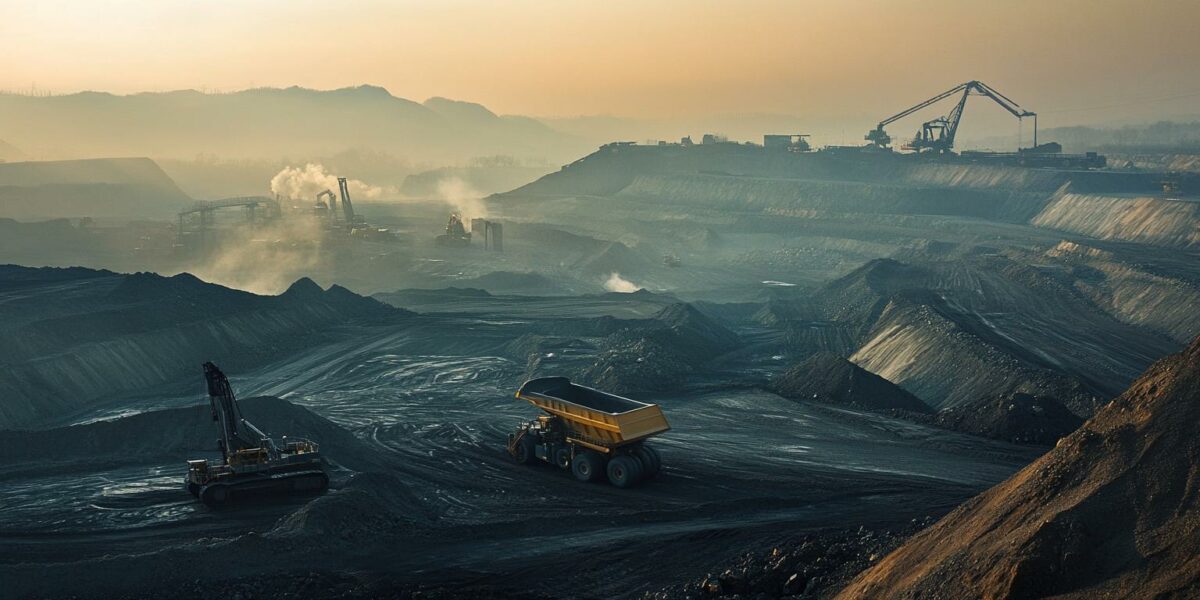Massive Coal Expansion: Climate Commitments in Question
Recent approvals for expanding three coalmines by Tanya Plibersek have raised substantial concerns. The anticipated climate impact is monumental, surpassing any previous approvals under the Albanese government. Critics argue that these expansions starkly contradict Australia’s pledged climate goals.
Earlier, Labor faced criticism for supporting new fossil fuel projects, but those were smaller in scale. These new developments could potentially add 1.35 billion tonnes of CO2 by 2048, a figure that dwarfs the emissions from previous projects.
This volume of emissions is globally significant, comparable to Australia’s entire domestic emissions over three years. Such actions seem to conflict with the international climate commitments made at the Cop28 summit in Dubai, which nearly 200 countries supported.
The agreement emphasized a just transition away from fossil fuels within this critical decade. However, the Albanese government’s approval of these expansions raises questions about its alignment with these global efforts.
International Repercussions and Domestic Criticism
Pacific nation leaders might find these decisions particularly troubling, as just weeks ago, Prime Minister Albanese was in Tonga, advocating for climate action. Approving over a billion tonnes of CO2 through coal mining wasn’t part of those discussions.
The government’s stance is even more contentious considering these approvals mainly benefit overseas power plants. Thermal coal, unlike metallurgical coal used in steelmaking, has viable zero-emission alternatives ready for deployment.
Australia aims to eliminate coal-fired electricity by 2035, yet these new projects entrench the polluting status quo. This contradicts the nation’s goal to keep global heating below 2C, striving for 1.5C since preindustrial times.
Plibersek defends her decisions by citing national environment laws and the safeguard mechanism, which aims to cap and reduce industrial pollution. However, these arguments face significant scrutiny. The mechanism covers only domestic emissions, while most coal-related pollution occurs overseas.
Policy Loopholes and Political Choices
The government could amend the Environment Protection and Biodiversity Conservation Act to include climate impact assessments for new projects. This change is supported by the Greens and key independents, but the prime minister, influenced by mining interests, opposes it.
Approving coalmines is a sensitive topic for the government. Plibersek releases statements when rejecting coal projects or approving renewable energy initiatives, but approvals for fossil fuels receive less publicity.
Addressing the climate crisis is undeniably complex. The government feels the public debate oversimplifies the issue, giving its opponents an easier time. Yet, when it greenlights substantial thermal coal developments, it undermines its own stance on climate seriousness.
Albanese, before the 2022 election, expressed his desire for climate action to be his legacy. These recent approvals suggest a significant deviation from that vision, raising critical questions about the government’s climate commitment.
Contradictions and Future Implications
The approval decisions reveal a significant gap between the government’s declared climate ambitions and its actions. Supporting massive coal expansions sends mixed messages about Australia’s commitment to global climate goals.
Environmental advocates argue that the government must align its policies with climate science to maintain credibility. The expansion projects highlight a clear contradiction in the government’s approach to addressing climate change.
Labor’s approach to these approvals has sparked debate, with some questioning the long-term environmental and political consequences. The implications of these decisions will likely reverberate through domestic and international climate discussions.
Ultimately, the government’s actions will be judged by their impact on the environment. Approving massive coal projects could have far-reaching consequences, undermining Australia’s role in global climate efforts and its own climate legacy.



mason
Is it just me, or does this feel like a betrayal to the Pacific nations? Weren’t we just advocating for climate action there?
Zachary_Echoes
Wow, 1.35 billion tonnes of CO2! That’s mind-boggling and extremely disappointing.😢
Whiskey_Kinetic
Thanks for highlighting this issue. It’s important we hold our leaders accountable!
LunaGalaxy
Does anyone else think this is a huge step backward? What happened to our climate goals?
logan
So much for climate leadership! Labor should be ashamed. 🙄
henry_blizzard
How can the government justify these approvals while claiming to support climate action?